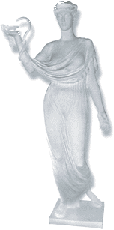

Ministry of Public Health and Social Development of RF
Russian Academy of Medical Sciences
Siberian Branch of Russian Academy of Medical Sciences
Siberian Branch of Russian Academy of Sciences
Medical Polar Fund “Science”
The Northern Forum



|
||

|
International Union for Circumpolar Health Ministry of Public Health and Social Development of RF Russian Academy of Medical Sciences Siberian Branch of Russian Academy of Medical Sciences Siberian Branch of Russian Academy of Sciences Medical Polar Fund “Science” The Northern Forum |
 
|
 |
Public health
Objectives: This presentation will present information on to support health human resource activities by putting in place strategies to support recruitment and retention of a competent workforce by ensuring that health care providers possess the critical skill sets necessary to service vulnerable populations with the highest quality professional health care.
Study design: A number of surveys were conducted to establish baseline data on specific characteristics of the FNIHB community health nursing workforce and to support the development of the strategy including the following information: demographics of the nurses, validation of community health nursing competencies for remote isolated communities, orientation, and an assessment of skill sets to use supportive technology. A formal competency assessment process was used to evaluate current skill sets of nurses who had completed recognized educational programs. A comprehensive program review was used to determine the strength and adequacy of teaching/learning philosophies, instructional methods and content of FNIHB educational programs.
Methods: A study was conducted and the purpose was: to support health human resource activities by putting in place strategies to support recruitment and retention of a competent workforce; to develop a multi-faceted approach, offering preparation to community health nurses practicing in isolated, atypical Canadian settings with a particular focus on standardizing orientation procedures, developing educational programs and utilizing technology to facilitate access to educational resources and to address unique educational requirements.
Results and Conclusion: This work has resulted in a re-design of FNIHB nursing education programs for integration with mainstream nurse practitioner education, and delineated nursing practice competencies unique to the remote isolated nursing practice environment in Canada. The use of CD-ROMS for educational purposes, the deployment of a nursing portal and the standardization of a national nursing orientation program are several possible key elements towards the attainment of knowledgeable and skilled nursing human resources - indispensable resource for the health of people living in remote isolated First Nations communities.
Note. Abstracts are published in author's edition
|
Mail to webmaster
Main page |
© 1996-2005, Siberian Branch of Russian Academy of Sciences, Novosibirsk
Last update: 06-Jul-2012 (11:52:05)